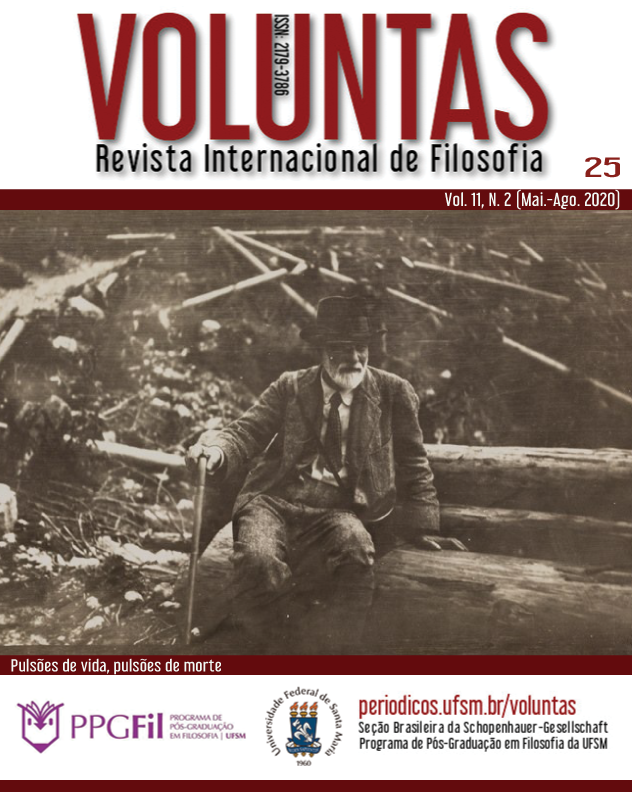Fernando Pessoa reader of Schopenhauer and the problem of free-will
DOI:
https://doi.org/10.5902/2179378644325Keywords:
Fernando Pessoa, Schopenhauer, Free-Will, Pre-heteronymsAbstract
This article aims to elucidate the relation between Fernando Pessoa, Schopenhauer and the problem of free-will, based on the reading that the Portuguese author made of the Schopenhauerian work. Indeed, throughout Pessoa’s writings one finds multiple testimonies of the reading that the Portuguese poet and thinker made of Schopenhauerian thought. An important indication for the study of Pessoa’s reappropriation of Schopenhauer’s thought is found in Fernando Pessoa’s Private Library, where one finds a French translation of Über die Freiheit des menschlichen Willens. The reading of this book would lead to the production of a multiplicity of philosophical writings that Fernando Pessoa attributes to two of his English fictitious literary personalities from the pre-heteronymic universe: Charles Robert Anon and Alexander Search. Thus, based on all these indications, we intend to show the impact of Schopenhauer’s reading on Pessoa’s literary universe.
Downloads
References
PESSOA, F. Correspondência (1923-1935). Edição de Manuela Parreira da Silva. Lisboa: Assírio & Alvim, 1999.
PESSOA, F. Escritos Autobiográficos, Automáticos e de Reflexão Pessoal. Edição de Richard Zenith. Lisboa: Assírio & Alvim, 2003.
PESSOA, F. Philosophical Essays: a critical edition. Edition, notes and introduction by Nuno Ribeiro. Afterword by Paulo Borges. New York: Contra Mundum Press, 2012.
RIBEIRO, N., SOUZA, C. (eds.). Fernando Pessoa, Schopenhauer & Nietzsche. Lisboa: Apenas Livros, 2017.
SCHOPENHAUER, A. Essai sur le libre arbitre. Traduit en français pour la première fois et annoté par Salomon Reinach. Paris : Félix Alcan, 1903. [CFP, 1-135]
Published
How to Cite
Issue
Section
License
The submission of original manuscripts to this journal implies the transference, by the authors, of the copyrights for printed and digital publication. The copyrights of a published manuscript belong ultimately to the author, and only the copyright for its first publication is reserved to the journal. Authors may only use the same results in other publications explicitly indicating this journal as the medium of the original publication.
Licence
Attribution-NonCommercial-ShareAlike 4.0 International (CC BY-NC-SA 4.0) - This license lets others remix, tweak, and build upon your work non-commercially, as long as they credit you and license their new creations under the identical terms.






